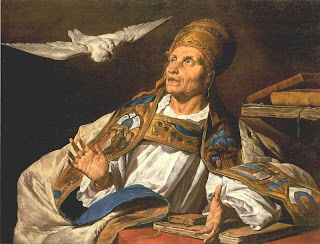Christ, the Fairest of All Men III: Song of Songs

Our meditations on Song of Songs ended at the 7 th verse of the first chapter, where the “lovely” Bride poses a question to her lover. She asks, “Why should I be like a veiled woman beside the flocks of your friends?” Song of Songs 1:1-3 Song of Songs 1:4-7 Song of Songs: Christ and His Church In this post, let’s look at the next four verses. 8 If you do not know, most beautiful of women, follow the tracks of the sheep and graze your young goats by the tents of the shepherds. 9 I liken you, my darling, to a mare harnessed to one of the chariots of Pharaoh. 10 Your cheeks are beautiful with earrings, your neck with strings of jewels. 11 We will make you earrings of gold, studded with silver. The speaker in these four verses is the Bridegroom, who is responding to the question posed to him earlier regarding the whereabouts of his “flock” (1:7). Earlier, we stated that the Bride’s love for her Bridegroom seems to be secretive and ...






